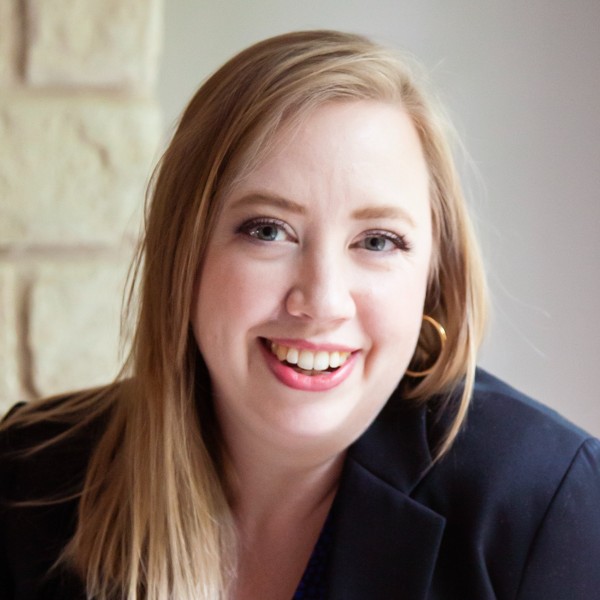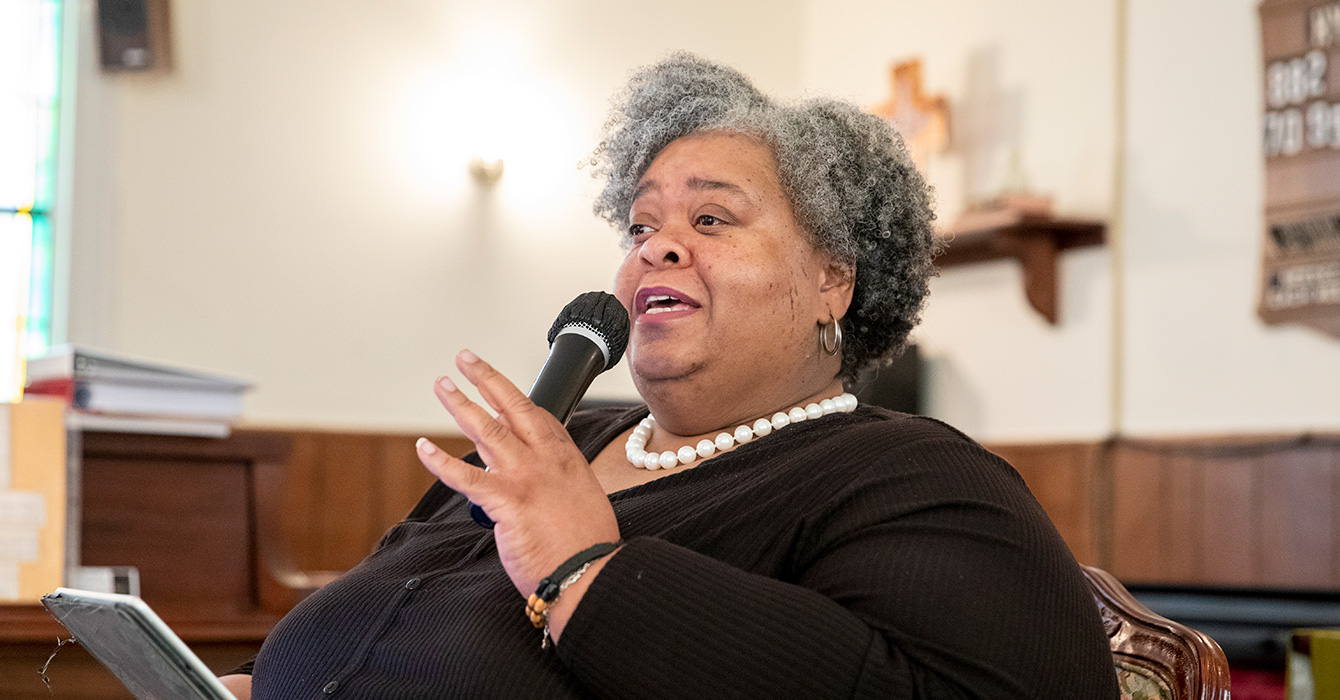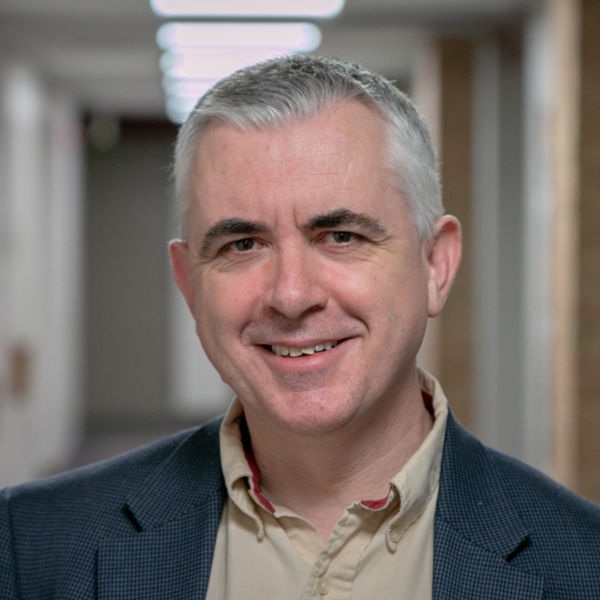Although he was Bishop of Durham in the Church of England for seven years, N.T. Wright doesn’t think about the church in terms of institutions. He thinks in terms of community.
“The institution is like the scaffolding that you need to be working on the building,” Wright said. “The scaffolding isn’t the reality.”
The General Synod, the Church of England’s legislative body, for example, is basically like plumbing, Wright said: “When you go into a friend’s house, you don’t expect to see the plumbing, but you need to know that it’s working, because if it’s not, fairly soon there’ll be a bad smell in the house.”
That is, the church’s institutions have to work well, or things can go wrong. People can get hurt, Wright said. Church leaders may sometimes feel like they’re working on scaffolding all day rather than living in the house, but “somebody has got to do that stuff so that the mission of the church can go forward.”
One of the world’s most distinguished New Testament scholars, Wright stepped down as Bishop of Durham in 2010 to become professor of New Testament and early Christianity at the University of St Andrews in Scotland. He has also held visiting professorships at the Hebrew University in Jerusalem, Harvard Divinity School and Gregorian University in Rome. He took a “double first” in classics and theology from Exeter College, Oxford, where he earned his D.Phil.
In October 2010, Wright delivered the Gray Lectures at the 2010 Convocation & Pastors’ School at Duke Divinity School. (Audio recordings of the lectures are available for free download through iTunes U.)
While at Duke, Wright spoke with Faith & Leadership about his years as bishop, the New Testament and leadership. The video clip is an excerpt from the following edited transcript.
Q: Could you tell us about the discernment process that led you to step down as bishop and return to the university?
This time last year I was on sabbatical in Princeton at the Center of Theological Inquiry. I had a wonderful time writing about St. Paul and working toward volume four in my series. I had a sense of things that were stirring that I needed to do business with and grapple with again. One or two friends said things to me like, “You’re sounding like your old self,” which rather rocked me back, because I actually thought that being a bishop was quite a good self to be.
When we got back to England in early January, it quickly became clear that my job being Bishop of Durham was going to close over my head like waves of the ocean over a drowning man. I loved that job. There was hardly any of it that I didn’t really enjoy, but there was more and more of it.
I was faced with the choice, which I grappled with until about Easter: That stuff I was doing on Paul in Princeton, was that just fun? Was that just a bit of play on the side, or was that actually something very serious that I’m supposed to be reconnecting with? And if that’s so, is it possible to combine it with the job that I’m doing?
By mid-March, to my surprise and my wife’s great surprise, I had come to the conclusion that the answer was that we had to look at the academic option. Around then St Andrews said, “Well, we are looking for a New Testament professor.” You don’t expect in your early 60s to be making that kind of major career move, but it’s hugely exciting. I feel it is a sort of new lease on life, even though there is a great sense of loss of what I’m no longer doing. But I guess life is about making choices like that.
Q: How do you manage to have a career that integrates church and academy in an age that usually demands they be put apart?
Sometimes it has felt as though being part of the church and part of the academy is pulling me apart. The way that the Western world has constructed itself, with religion over there and other kinds of work over there, has always done that to people.
The model that I’ve had in mind -- because my big hobby has always been music -- is that in Oxford, there are several colleges where the man who teaches music, the academic study of music -- usually it’s a man -- also conducts the college choir. They are great conductors but also very serious teachers of music or writers about music, and I’ve often said to people, “Would you rather be taught music by somebody who is tone-deaf or by somebody who is about to dash off and conduct a rather risqué version of the St. John Passion or something?” Even if they’ve got funny ideas about it, I would go with the person who is making the music.
It’s the same in theology, and I’ve tried to model that. Would you rather be taught about the Bible by somebody who is actually trying to take the risk of saying, “Maybe this is the text that ought to be determining who we are, how we live, how we see ourselves, what we’re here for”? I’ve always had that as the dream, and I’ve then spent my life trying to adjust with the checks and the balances.
My tutor told me at college 40 years ago that I would have to choose between being an academic and a pastor or preacher, and I decided then and there that I wouldn’t make that choice.
Q: So your decision to return to the academy shouldn’t be interpreted as “I tried to have an impact in an institution, but it didn’t work”?
I think I have had such impact as one can, and could have gone on doing that. I’ve had as much impact as I could have wanted, and certainly there was no sense at all of, “Oh well, I tried that; it didn’t work.”
No doubt there were many things that I could have done better or could have done differently or should have done differently, but no, I was thoroughly enjoying myself. I’ll give you an example. Durham, where I was bishop, is basically coterminous with the old County of Durham, and the County of Durham is twinned with one of the biggest ships in Her Majesty’s Navy, HMS Bulwark. They asked me to dedicate their chapel onboard. Then they asked me to organize a service. We had some dinners, and then the captain said, “We should get some of your folk together and some of my folk together, and we could have some good discussions.” We organized a seminar onboard ship on war and peace and faith, with Oliver O’Donovan, Nick Sagovsky and Nigel Biggar, myself and four military -- absolutely top brass -- in the wardroom on HMS Bulwark, and had the most amazing day of discussion.
That’s the sort of thing you can do as a bishop in the Church of England. I was just loving doing that. That’s hands-on theology, and I very much regret having to step back from that sort of thing, but I hope it will be for the greater good. That’s a risk, like all vocational choices.
Q: What did you learn about institutional leadership as a bishop that surprised you?
Having been a member of the Church of England all my life, I think one learns to accept that it’s a very odd sort of organization, and its many-sidedness means that it doesn’t turn around very easily. It doesn’t move very fast in any direction. Once you accept that it is actually “Like a mighty tortoise / Moves the church of God,” as the old hymn says, then there are things that you can do and things that can happen within it.
Sometimes the inertia is itself a strength, because there will still be people going to that church even if the last three vicars have been a complete dead loss. There are people in that parish who know that, in this community, this is where you go and say your prayers and where you go and get married or buried or whatever it is.
You can work with that. You can bring new life within that, even though sometimes it is absolutely deeply frustrating and you just want to get the bulldozers out and say, “Let’s clear this off and start again.” You can’t actually do that in a community like the Church of England. Some of these beautiful churches go back to Saxon times. It’s deeply part of the community.
So I don’t think in terms of institutions. I think in terms of community. The institution is like the scaffolding that you need to be working on the building. The scaffolding isn’t the reality. When people say, “Isn’t General Synod frustrating?” I say, “General Synod is basically the plumbing.” When you go into a friend’s house, you don’t expect to see the plumbing, but you need to know that it’s working, because if it’s not, fairly soon there’ll be a bad smell in the house.
On the business side, the institutional paraphernalia has got to be working. Otherwise, things go wrong. People get hurt. Of course, when you’re bound up with the institution, it does sometimes feel as though you’re working on scaffolding all day, and you’d rather be living in the house than hacking about with the scaffolding, but somebody has got to do that stuff so that the mission of the church can go forward.
Q: How do your biblical and doctrinal commitments affect how you do the scaffolding and plumbing, or do they?
When you try to hold in your mind a vision of what God’s kingdom ought to be like, that ought to affect the way you treat people at every level in an institution. I’ve seen that done well, and I’ve seen it done badly. I’ve seen times when things that in a secular institution would have resulted in big explosions didn’t, because all parties involved were doing their darndest to forgive one another, to work with one another, to keep their cool, to handle things wisely and maturely. I’ve also seen times when you get worse treatment in the church than you would in a secular organization. It’s all sorts really, but that is the challenge.
Part of the difficulty is that we have in the Western world for far too long a kind of romantic idyll, that if only we were really plugged in you wouldn’t have to have any organization. There wouldn’t be any overheads, any administration. There will always be things that need to be handled structurally, and it’s not then a question of Spirit or structure. It is good structure or bad structure. I’m happy to have given a fair chunk of my life to try to make some of the structures at least better than they would otherwise be.
Q: I’m curious about your role in the House of Lords and what it’s like to make a contribution to civil society in a multifaith setting like the U.K.
One of the things people forget in the U.K. is that at the last census something like 72 percent ticked the box saying “Christian.” Of course, that’s a big challenge for the church, because average church attendance is running somewhere between 5 and 7 percent and lower. What that probably meant was, “We know we’re not Jewish. We know we’re not Buddhist. Granny had us all baptized, so we’re basically Christian.” It’s kind of a default mode. Still, the great majority of the country think of themselves as at least nonplaying members of the church.
When we say “multifaith society,” we shouldn’t kid ourselves that there’s actually 20 of this, 15 of that, 18 of that. The real problem is not multifaith. It’s those who basically think of themselves as thorough secularists. Often the rhetoric of multifaithness is actually a smoke screen put up by secularists as a way of putting Christians down.
I’ll give you an example. When we were debating euthanasia (in the House of Lords), Rowan Williams made a stunning speech from the bishops’ benches, and some of the people who opposed him were taking him on: “You’re a Christian; you have no right to ram your ideas down our throat.” We are not good at figuring out how to do God in public discourse.
This has bounced up in all sorts of ways recently. We had an airline worker a couple of years ago sacked for wearing a cross and refusing to take it off. We had a nurse with a patient in a terminal condition who offered to pray with the person, and she was suspended for forcing her religion on them. So we’ve got lots of tough things like that happening, and we in Britain aren’t used to navigating that. We never had, obviously, a church/state split like the States did. We never, happily, went that route, but we’re kind of learning it by the back door anyway.
My own experience has been, standing up in the House of Lords, that if you’ve got something to say, the great majority of people want you to say it. One reason is that many of the members have retired from senior jobs in the community, and they know that the bishops spend most of their time with ordinary members of the public. When we speak, we’re coming hot from the coalface, as it were, to say, “This is what’s actually going on.”
We had a debate on the economy just after the great crash a couple of years ago, and of 45 speakers, I was the only one who talked about poverty. Everyone else was talking about how to get business and the banks back up and running again. It’s often a matter of breaking things open and saying different ways of doing it. I’ve found that very exciting, and I really do regret not having that now.
I’m very interested in what a Christian vision of wise government might be. There are insights we can bring to bear.
Q: Say more about that.
It’s difficult to think outside the box of Western democracy in order to evaluate it. I don’t want to live in a country that isn’t a modern, Western democracy -- far from it. At the same time, I’m very aware that we have tended for the last 200 years in the West to pat ourselves on the back and say, “Well, that’s it. We’ve arrived. We now have the best possible thing, and it’s just a matter of everybody else catching up.”
That is pure Enlightenment rhetoric. It’s Western democracies that have led us into some disastrous wars, that have allowed economic chaos, that have allowed urban poverty and blight to proceed unchecked, that haven’t made sure that industries do what they’re supposed to do. Our present system, where you have a non-elected House of Lords -- it is mostly people who have been selected by their peers through whatever business they’re in or profession they’re in who eventually get put in there -- has had a very good effect of having people who are not career politicians able to provide a very strong check and balance on people who are career politicians.
The way in which money and politics go together is disturbing on both sides of the Atlantic. You have to raise a lot of money even to run for office. Our democracies are ripe for overhaul to make them do better what democracy ought to do. This is the principle that I get from the first century.
The early Jews and the early Christians were not very worried about how people came to power. They were very concerned about holding people in power to account. Somebody has a military coup: “OK. So-and-so is now in power. That’s the reality. Let’s not pretend. Let’s not say, ‘Oh dear, you weren’t voted for, so we’re all worried about that.’
“No. You’re in power. Now we are going to remind you what your God-given responsibilities would be.”
Holding up a mirror to power is a primary ecclesial task, and reminding the authorities that they are not God is a major task. Alastair Campbell, Tony Blair’s press officer, said, “Downing Street doesn’t do God.” What happens when you do that is God gets kicked upstairs. He’s pushed out of the system, which allows the present occupants of the office to occupy at least part of the space. So almost at once what we had was Tony Blair and others talking about, “We are going to go and solve the problem of evil.”
That sort of messianic temptation is not diminished -- because it’s actually enhanced -- by getting God out of the equation. It is the church’s job to figure out how to put God back in the equation without going anywhere near something that could be seen as theocracy in the wrong sense. People say, “Oh, we don’t want God on the block, because then we’ll have Christian clerics telling us what to do.” It isn’t that at all. It is reminding people, human beings, of what the Creator God wills for his world. One of the first signs of that is putting the weakest people in the front of the queue when we’re thinking about policy.
Q: You mentioned speaking about poverty in the House of Lords. What do you think the righteousness of God means for, say, three unemployed generations in a housing project in Durham?
I take “the righteousness of God,” that phrase in Paul, to mean what it means in the Psalms, which is the utter faithfulness of God to the covenant with Israel, which was designed to put the world right. God’s righteousness is that attribute of God that means he is determined to sort the mess out through the way that he has chosen, ultimately through Jesus Christ. That means that one has a solid platform on which to stand to talk about putting things right in the community.
This is not something off on the side, as in, “Oh, Christian faith is over here, and then, oh dear, there’s some people in pain there. Let’s get the Band-Aids out.” It’s absolutely vital to make those connections between justice and justification, and to say God intends eventually to put the whole world right. He has already done it in Jesus Christ. We who live in between those two poles have got to make sure we are moving in the power of the Spirit from the one towards the other.
That means you have to move from theory to detailed practice: What new job starts are there here? How flexible is the population, in terms of how far can they move? What are root causes of the present poverty? How is education going there? What are people’s aspirations? How are they being taught and trained? Why is it that we aren’t training new generations of plumbers and electricians and carpenters and we have to import them from Eastern Europe?
There are roots to these questions, and some of them are quite jumpy and nervous, but that’s part of the deal. One of the fun things about being in the Church of England is that, still in the northeast of England at least, the local community expects the church to be involved. They know that we punch above our weight. They know that we are players.
Q: What does your understanding of Jesus’ bodily resurrection mean for how we treat people along those lines of justice and justification?
One of the great things that I began to realize when I was working on Jesus’ resurrection and on the New Testament’s vision and the early fathers' vision of the whole creation renewed -- think of Irenaeus and people like that, amazing picture of whole creation being transformed by the love and power of God as you find in Romans 8 for instance -- is that you suddenly realize that when Paul is then being very specific, say in 1 Corinthians 6, about what we do with and behave with our bodies -- that God is going to raise this body, so jolly well take care what you do with it -- and you realize, this isn’t just a kind of flag-waving bit of rhetoric. It’s quite serious. He really means it. We’re not mucking around with trash here. And in the same way with creation, this creation that we live in, that we pollute or grow plants in or whatever, is the world that God is going to renew.
So for me, a rediscovery of the biblical vision of new creation validates in advance all the things that anticipate that work, and if anyone were to say, “But it hasn’t happened yet,” the answer is, “Well, it has actually -- with the resurrection of Jesus.” This is why the bodily resurrection of Jesus is not just a nice theological option for people with a vaguely conservative bent or whatever. It’s the most explosive thing there could be. It is the launching of new creation ahead of time, creating a platform on which we can work for new creation in the present until the day when God finally does it. And I still find that vision very, very -- it’s not only helpful, it reconciles the deep vision of different strands of Christians.
In England, I see this particularly -- the Gospels Christians and Epistles Christians, if you like. The Gospels, that “Jesus did all this neat stuff about feeding the hungry and going with the poor. We’re going to do that.” Fine. OK. Then all that stuff about salvation sort of gets lost off. Then the Epistles Christians say, “No, what matters is to be saved, and here’s how, and don’t worry about all the social work. Leave that to the politicians.” And a lot of my work over the last many years has been to try to hold those two together and explain to them the larger biblical framework of thought within which both make sense but both need each other.
Q: What might your book “Virtue Reborn” (U.S. title, “After You Believe”) have to say to institutional leaders in the church and the world?
Christian leadership, or the vocations, the different gifts and callings which you find in Ephesians 4 and similar passages, strike me as being designed so that God can work through some human beings to enable others to grow in that way. They’re not for their own sake. One of the great differences between Christ and Aristotle -- for Aristotle, virtue is a great individual thing, the big hero figure; in Christianity, it’s always a team sport.
So it’s like -- I grew up playing rugby -- you cannot develop as a scrum half in rugby unless you have a fly half with whom you’re working, because you can’t be a scrum half by yourself. In the same way, a Christian leader can’t be a leader all by themselves developing this great character. It’s got to be somebody who is discovering the character strengths of bringing other people with you into the vision and coordinating their gifts, discerning those gifts and deploying those gifts in the right way. That’s one of the things a bishop has to do a great deal of, is discerning and deploying gifts.
Q: How can institutions leave the door open for the Holy Spirit’s work without falling prey to the dangers of using the term as an imprimatur to empower work they are already doing?
As bishop, from the start, my staff and I met once a month for a whole day. I said, “We’re going to spend the first hour in prayer and Bible study.” Almost all churches have statements of what they believe and how they practice, and something about the authority of Scripture. I’ve often said to people, “If you were to come into a room and find that the authority of Scripture was at work there, what would you see going on? What would it look like?”
I fear that, all too often, what it means is that those who went to seminary studied Scripture 30 years ago. They dimly remember reading a commentary, of which one said this or that or the other, and they’re kind of feeling their way, and there may be the odd new insight that they read in a journal or a newspaper or something, but there’s not real engagement.
So we did a kind of Ignatian-style meditation. We’d say morning prayers, and then we would simply stay in the room and have some silence and then have some sharing from lectionary readings, and out of that sharing, themes would emerge. Sometimes sharp disagreements over the themes would emerge, and we would go around and we’d read the passages again. Frequently, both in those single-day meetings, and then when we did three-day meetings two or three times a year, the themes that we’d been struggling with had soaked their way down into our consciousness so that then when we came to discussing all sorts of policy issues, we would do so on that grid, as it were.
Now, that does not mean for a moment that all the decisions we took were the right ones. It means that we were trying to be at least open to the possibility of wisdom beyond the wisdom that any of us had brought. A solution that none of us had thought of would come out, and often when that happened they would be the real gems, the things that you look back in five years’ time and say, “Thank goodness we did that.”
It’s a constant effort to make sure that there is humility before God in order to have confidence before the church.
Q: How does your ecumenical work grow out of your work as a reader of the New Testament?
Two years ago I had the privilege of being the Anglican observer of the Synod of Bishops in Rome. The subject was the Word of God. One man said there are two great ecumenical instruments, baptism and the Bible. I was thinking, “Yes, this is great. We respect one another’s baptisms.” That is foundational and huge. If somebody has been baptized in the name of the Trinity, you don’t rebaptize them, even if they switch denominational allegiances, which says a great deal. The other thing is that we’re basically reading the same text and we’re preaching from it.
I came back from that conference and said to my colleagues in Durham, “This is what they’re saying in Rome,” and called up our local Catholic bishop: “Now, what are we going to do about this?” So we’ve had this wonderful program in the northeast called the Big Read. We’ve had ecumenical groups right across the northeast of England spending Lent and Easter time reading the Bible together and, particularly for the Catholics, many of the lay faithful have never done that. Certainly most of ours had never sat down with a Roman Catholic and read the Bible before. Once you open the Bible and pray for the Spirit, God is going to do what God is going to do, but it was the Catholics who actually were leading the way on it, which is so counterintuitive in terms of normal Protestant rhetoric.
Q: Sam Wells has described Anglicanism as being a reconciling presence between Catholic and Reformed Christians. If so, what does it mean as the Roman Catholic Church moves in directions like you describe?
I think it was Michael Ramsey who talked about the vocation of Anglicanism being to stand in the middle and to try to hold on to the different bits and pieces. Certainly it’s been my actual on-the-ground experience, wonderful moments of introducing the local Roman Catholic bishop to the local house church leader and discovering how much they had in common and how they could embrace one another and enjoy fellowship together.
I think Anglicanism can demonstrate to our Catholic friends that it is possible to be a faithful, liturgical, eucharistically focused -- in that sense, Catholic -- community, and hence, the way that Rome has gone over the last 150 years isn’t the only way to do it, as it were.
When our new Catholic bishop was installed in Newcastle, I had to go make a speech at his installation to welcome him to the area. They had a procession where we were all put in order. I was sort of four or five from the back, and the Catholic bishop plucked me out of the procession and insisted that he and I walk down the aisle side by side. It was a very moving moment for me. It was saying, “Whatever the books say, we’re in this together. We’re not on different teams.” And when that’s happening, I just think something about being an Anglican is actually working.
Q: Irenaeus wrote that “the glory of God is a human being fully alive.” I wonder when you’ve seen a man or woman leading in a way that leaves a trail of glory behind.
Very recently I went to see an old friend who had been a schoolteacher, a young master at the school where I was a teenager. I visited him in the hospice, and it was clear that he only had a few days to live. His wife was there, now his widow. Her humanity was an extraordinary mixture of joy and grief. You could see it on her face, and I came out of the hospice happy. He died about three days after that, but my abiding memory was, “I have just seen a human being fully alive,” and it was this good lady -- and she will never hit the headlines.
From that to -- many, many times I have seen Rowan Williams preside over the Eucharist or preaching or quietly praying with somebody at a conference. Somebody has asked him something, and Rowan will just pause and pray with them completely unselfconsciously. You have a sense of, “Here is somebody who God has called, equipped in an extraordinary way, brought to a place where his rich spirituality and humility can be fully operative -- and thank God for that.”


















